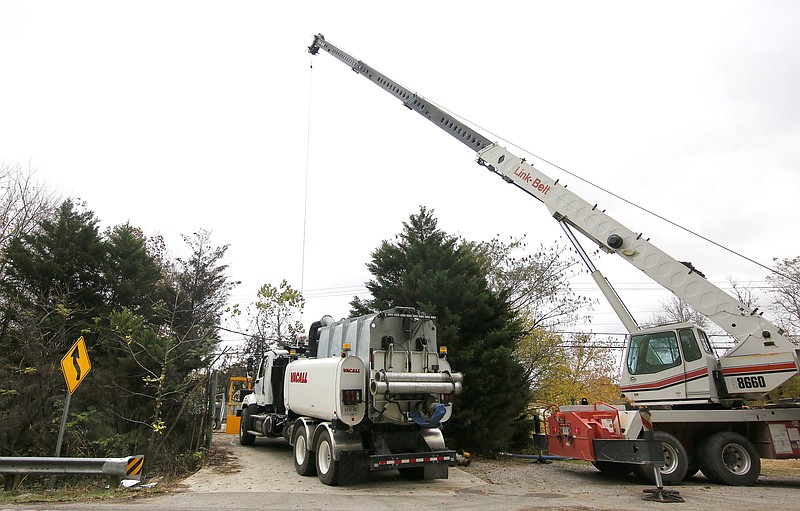Two massive problems are heading straight for Hamilton County, and one way or another they have to be solved.
Somebody's going to have be the enemy. The question is who.
One of the problems is the millions of dollars in maintenance and repairs needed on sewage lines in county territory managed by the Water and Wastewater Treatment Authority (WWTA) and the consent decree that is expected from the federal Environmental Protection Agency because of problems with those lines.
The other problem is what to do going forward to expand sewage capacity for the fast-growing northeast end of the county. County commissioners recently said no to granting WWTA a special permit for property at 7800 Mahan Gap Road to build a treatment plant to handle such growth.
Sewage is a dirty word to many in the county these days, but the filth may pale in a few years compared to the cost of rates county residents are going to have to pay for their sewage services.
Right now, WWTA is Public Enemy No. 1. With the backing of Hamilton County Mayor Jim Coppinger and bond money availability from a 2017 de facto county property tax rise, it dared to suggest a solution - the new plant - to expand sewage capacity in the northeast end of the county and even stem some of the ongoing problems.
But with commissioners' rejection of the new plant have come sniffs from other entities which might have an interest in purchasing the beleaguered utility - and becoming Public Enemy No. 1. One sniff, even, has come from Tennessee American Water Company, which handles the ingress and egress of water into most of the homes in the city of Chattanooga.
To date, WWTA board chairman Mike Moon has said its board has not discussed a sale and would need to request proposals from potential buyers in order to do so. But he also acknowledged that inquiries did come the board's way after the commission vote.
"We're looking for direction from the county commission," he said.
Indeed, the nine members of that body owe it to county residents to determine next steps about the problems coming their way. Would they prefer the WWTA look for alternative sites for a new plant, be sold to an out-of-town firm to manage it, entertain an option for purchase from Tennessee American Water Company or what?
One of the or-what possibilities is a no-brainer, according former Chattanooga Mayor Ron Littlefield. Chattanooga's Moccasin Bend Wastewater Plant has plenty of capacity to handle wastewater from the northeast end of the county, he said, so it's actually inefficient to build a separate system.
Various details would have to be worked out satisfactorily, he acknowledged, but one possibility would be city-county governance of a consolidated water system under a single authority like the Electric Power Board.
Too often, Littlefield recently told Times Free Press editors and reporters, it "comes down to control," but it's important to "get people to understand we're all a community."
The former Chattanooga mayor wasn't sure the "political will to deal with it" currently exists, but things could change.
Two things that won't change are the dual problems heading the county's way with the continuing maintenance costs (and attendant coming consent decree) and the need to expand capacity.
No one should make a snap decision, but every possibility pushes a potential outcome months and possibly years down the road. Siting potential land for a new treatment plant takes time. A request for proposals for a sale takes time. Negotiations with Tennessee American take time. A formal agreement with the city takes time.
It is our hope the county commissioners view this as the crisis it is and do not choose to kick the can down the road. The problems are coming, and somebody's going to have to correct them. Whatever the solution will require lots of money, lots of torn-up land and - at least at some point - significant fee increases.
We suggest commissioners - and the mayor - take leadership on this. They should put all of the options on the table, secure all the information possible, hold public meetings and then take the lonely but necessary step of making a decision. It won't be any easier a year from now.
